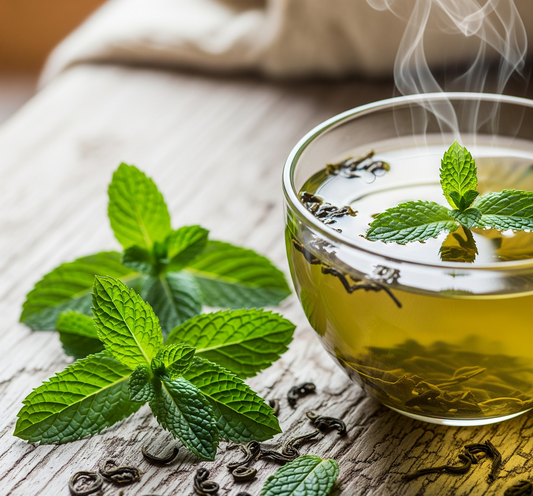Nepal produces premium teas, especially Nepali black tea, known for its unique flavors due to its rich history, small-scale, artisanal production, and distinct climate. Cultivation began in the 1860s, and today, Nepal's black tea offers complex flavor profiles and health benefits. Enjoy Nepali black tea hot, spiced, or as a cold brew.
While you may be familiar with teas from China and India, the relatively small nation of Nepal has also been making a name for itself as a producer of premium teas, especially Nepali black teas.
Let’s take a closer look at what sets Nepali black tea apart from it’s contemporaries. We’ll also get into how you can prepare a delicious cup of Nepali black tea from the comfort of your home, and tell you how you can get the best black tea delivered directly to your doorsteps from the nature-kissed hills of Nepal. But first! Let’s start from the basics.
A Brief History of Nepali Tea
The cultivation of Tea in Nepal can be traced as far back as the 1860s, when Colonel Gajraj Thapa, the son-in-law of the famous Prime Minister Jung Bahadur Rana established the first tea plantations in the district of Ilam.
 Nepal’s first tea industry was established around 1873, when Thapa, impressed by the tea plantations during a visit to Darjeeling, India, set up two plantations - the Ilam and Soktim tea estates. The tea saplings were gifted by the then-emperor of China to Prime Minister Jung Bahadur Rana.
Nepal’s first tea industry was established around 1873, when Thapa, impressed by the tea plantations during a visit to Darjeeling, India, set up two plantations - the Ilam and Soktim tea estates. The tea saplings were gifted by the then-emperor of China to Prime Minister Jung Bahadur Rana.
This marked the starting point of Nepal’s tea industry, with the first tea plantation established in 1959 and the first tea processing factory set up in 1978. The slow start, especially compared to the neighboring, Darjeeling can largely be attributed to the political turmoil and economic policies that made it difficult for the industry to flourish. Regardless, Nepal's tea industry gradually evolved into a fully commercialized industry, benefiting the country's economic and socio-economic development. Today, Nepal produces all types of tea and is known for its unique flavors and aromas.
What makes Nepali Black Tea so Unique?
Cultivated and processed in the lush and serene tea farms of Nepal, Nepali black tea has managed to emerge as a distinct and celebrated category within the global tea market. It is distinguished for its unique flair profile, rich history, and meticulous craftsmanship. Several factors contribute to making Nepali black tea a unique option among tea connoisseurs.
Historical Context
Unlike its Indian counterpart, the tea industry in Nepal has only recently started to emerge in the international market. Characterized by comparatively smaller-scale operations that focus on quality over quantity, these industries are in stark contrast to India’s tea production juggernauts that were established during the British colonial era.
Nepal’s tea industry is characterized by smallholder farms and boutique tea gardens. This smaller and more intimate scale of operations allows for greater attention to detail and emphasis on artisanal methods.
Unique Climate
Most tea farms in Nepal are located in the eastern regions of the nation. These locations experience both the cool and fresh winds from the majestic himalayas in the north and the warm winds from the Bay of Bengal towards the South. This unique climate condition helps create unique and distinct flavor profiles.
This variation of climates allows for the cultivation of a wide range of tea varieties, from delicate white teas to robust black teas. The fertile soil, abundant rainfall, and ample sunshine further contribute to the exceptional quality of Nepalese teas, making them highly sought after by tea connoisseurs worldwide.
Hands-on Processing Technique
With the smaller scale of production and operation, comes more control over processing. Nepali tea producers are renowned for their meticulous and artisanal method that prioritizes minimal intervention. This approach helps to ensure the natural qualities of the tea leaves are preserved to the fullest.
 Unlike larger manufacturers who may need to prioritize volume and consistency, Nepali tea producers have the liberty to experiment and innovate, leading to some unique and varied teas with distinct aroma and flavor profiles.
Unlike larger manufacturers who may need to prioritize volume and consistency, Nepali tea producers have the liberty to experiment and innovate, leading to some unique and varied teas with distinct aroma and flavor profiles.
You can read an in-depth blog on the production process of Nepali Black Tea Here: How is black tea made: A Beginner's Guide to Black Tea Production
Distinct Flavor Profiles
All of these factors result in the production of black tea that offers a one-of-a-kind sensory experience. Nepali black tea has managed to carve out a reputation for itself for its briskness, with complex yet balanced flavor profiles. From floral and fruity to nutty and chocolaty, there’s a Nepali black tea that can meet the preferences of every person.
Health Benefits of Nepali Black tea
Unlike other teas, you can prepare a delicious cup of this tea by itself or by pairing it with milk and sweeteners. In recent days, people have also started enjoying this tea by mixing it with spices and herbs that offer a truly one-of-a-kind drinking experience.
 Nepali black tea is known for offering several health benefits. We’ve listed down the top 5 for you:
Nepali black tea is known for offering several health benefits. We’ve listed down the top 5 for you:
Boosts Immunity: They contain theaflavins that, according to Hindawi, have been proven to eliminate abnormal cells in the body before they can cause any damage or mutate into cancerous cells.
Aids in Weight Management: Nepali black tea may also help in weight management and offer anti-inflammatory benefits. This beverage has been known to boost metabolism by boosting fat oxidization, making it a helpful addition to a weight loss regime.
Improves Mental Clarity: Nepali black tea has a perfectly balanced level of caffeine and L-theanine. These compounds can enhance cognitive functions, and increase mental alertness without the jitters and the crashes commonly associated with coffee.
Rich in Antioxidants: This beverage also contains major bioactive compounds like polyphenols and flavonoids that help combat oxidative stress, and reduce the chance of diabetes and other forms of chronic diseases.
Besides the health benefits, Nepali black teas also stand out for their amazing range of flavor profiles and aromas. Teas like Everest Black and Nepali Breakfast are some of the top black teas in our collection that can make for a unique tea-drinking experience.
Nepal Tea Collective’s Everest Black stands out as a Nepali black tea that is cultivated at 8,786 feet, the highest tea farm in the world. It is infused with earthy eucalyptus and sweet honey notes, creating a truly vibrant flavor. Nepali Breakfast is a Nepali spicy black tea that will warm your body and enhance blood circulation with its infused mix of premium spices.
Nepali Black Tea Recipe
If the health benefits and versatility weren’t enough to get you into Nepali black tea, this beverage can also be prepared in several different ways and for several different purposes from the comfort of your kitchen!
To make the process easier, we’ve listed down three methods for you.
For a Refreshing Cold Brew Nepali Black Tea:
- Use approximately 1 gram of Nepali black tea per 100 ml of cold water. Adjust based on your taste preference.
- Place the Nepali black tea leaves in the glass jar or pitcher.Pour cold, filtered water over the tea leaves. Use double the amount of tea you would for hot tea.
- Cover the jar or pitcher and place it in the refrigerator.
- Let it steep for at least 6-8 hours, or overnight for best results.
- After steeping, strain the tea to remove the leaves.
- Serve the cold brew Nepali black tea over ice for a refreshing experience.
- Savor the smooth, mellow flavors of the cold brew Nepali black tea.
- Experiment with garnishes like lemon slices or mint for added freshness.
- Store any leftover cold brew tea in the refrigerator for up to 2-3 days for optimal taste.
For a Flavorful Nepali Spicy Black Tea:
- Prepare the Spice Blend: In a small bowl, mix ground spices like cinnamon, cardamom, cloves, ginger, and black pepper. Adjust the quantities to suit your taste preferences.
- Heat 10 oz of water in a pot until it reaches a rolling boil. The quality of water can significantly impact the taste of your tea.
- Place 1 to 2 teaspoons of Nepali black tea leaves in a teapot or cup. Add a pinch of the prepared spice blend to infuse the tea with warm, aromatic flavors.
- Carefully pour the hot water over the tea leaves and spices, ensuring they are fully immersed.
- Allow the tea to steep for 3 to 5 minutes to extract the flavors of the spices and tea leaves. Strain the tea to remove the leaves and spices.
- Sweeten the tea with sugar or honey to balance the spices. Enjoy the rich, spicy aroma and flavors of Nepali Spicy Black Tea as a comforting and invigorating beverage.
For a Robust-Energy High Nepali Black Tea:
- Measure out 10 oz of filtered water and heat it until it reaches a rolling boil.
- Add 1.5 to 2 teaspoons of high-quality Nepali black tea leaves to your steeping cup or teapot, using a tea infuser or strainer to contain the leaves.
- Pour the boiling water directly over the tea leaves, ensuring that all the leaves are fully submerged.
- Allow the tea to steep for 5 minutes, as this longer steeping time will extract more of the tea's natural caffeine and create a more robust flavor.
- After 5 minutes, remove the tea infuser or strain the leaves out of the cup. The tea should have turned a rusty golden color, indicating that it is ready to be enjoyed.
- Serve the tea hot and add any desired sweeteners or milk. The robust flavor of this tea can stand up well to the addition of milk or cream.
Remember, the key to brewing the perfect cup of Nepali black tea is to use high-quality tea leaves, filtered water, and the right steeping time. Experiment with different steeping times and leaf quantities to find your perfect cup.
Pick from our range of premium black teas from Nepal Tea Collective to experience a truly unique and special tea-drinking experience.
FAQs About What makes Nepali Black Tea Unique
What makes Nepali black tea unique?
Nepali black tea is unique due to its high-altitude cultivation, small-scale artisanal production, and distinct climate influenced by both the Himalayas and the Bay of Bengal. These factors result in complex flavors, ranging from floral and fruity to nutty and chocolaty, with a brisk yet smooth finish.
How does Nepali black tea compare to Darjeeling tea?
While both teas share similar growing conditions, Nepali black tea is often fresher due to direct farmer-to-consumer supply chains. It also tends to have a bolder, more varied flavor profile, as Nepalese tea producers focus on small-batch, high-quality processing techniques rather than mass production.
What are the health benefits of drinking Nepali black tea?
Nepali black tea is rich in antioxidants like theaflavins and polyphenols, which help boost immunity, support heart health, and reduce oxidative stress. It also aids in digestion, improves mental clarity, and provides a balanced energy boost without the jitters associated with coffee.
How should I brew Nepali black tea for the best flavor?
For a classic hot brew, steep 1.5 to 2 teaspoons of Nepali black tea leaves in 10 oz of boiling water (about 200°F or 93°C) for 3-5 minutes. For a cold brew, steep the tea in cold water for 6-8 hours in the refrigerator for a smooth, refreshing taste. You can also experiment with spices for a Nepali-style chai.
Where can I buy authentic Nepali black tea?
You can purchase high-quality Nepali black tea from Nepal Tea Collective, which offers direct-from-farm premium teas like Everest Black and Nepali Breakfast. These teas are sourced from smallholder farmers and carefully crafted to deliver the best flavors and health benefits.
About the Author
Nishchal Banskota is the founder of Nepal Tea Collective, dedicated to offering the finest Nepali teas. With years of experience in the tea industry, Nishchal is passionate about sharing the culture and craftsmanship of Nepali tea with the global tea industry. Learn more about Nepal Tea Collective and explore a variety of award-winning teas that bring you closer to the heart of Nepal.




